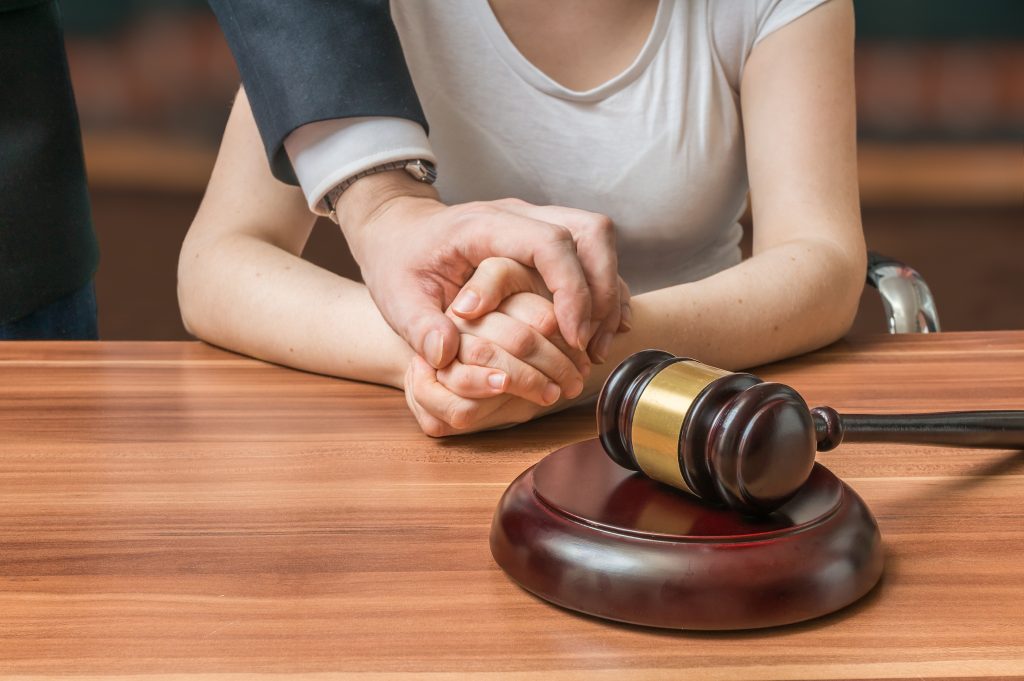While some personal injury lawsuits deal with auto accidents that cause major or permanent injuries, the majority of car accident lawsuits are for so-called “minor injury” incidents that happen in auto collisions. In Nova Scotia, a “minor injury” is legally defined as a sprain, a strain and certain types of whiplash-associated disorder.
If you have been injured in a car accident caused by another person’s negligent or distracted driving, you have the right to make a claim for personal injury reimbursement for any financial loss suffered as a result of injury, among other things. No matter how minor an injury may be, being injured in an accident that wasn’t your fault entitles you to recover damages from the at-fault responsible party.
At McKiggan Hebert, our team of seasoned personal injury lawyer have taken on a number of personal injury cases—including those pertaining to minor injury—and have fought on behalf of our clients to receive the compensation they deserve.
To that end, we’ve answered a number of frequently asked questions from current and former clients about what constitutes a minor injury, how much compensation you may be eligible to receive, and how to go about pursuing a claim in a minor injury case.
How Much Can I Recover in Minor Injury Damages in Nova Scotia?
In Nova Scotia, the cap for pain and suffering damages awarded on “minor injury” claims was adjusted in early 2018 to be $8,579.
What is a Minor Injury in Nova Scotia?
Under the Nova Scotia Insurance Act, a “minor injury” is defined as a “sprain, strain or whiplash-associated disorder, category 1 or 2.”
While these “minor injuries” typically cause some degree of discomfort and/or inconvenience following a car accident, they can also lead to much more serious injuries if not properly treated. Sometimes, victims of an accident who have sustained “minor injuries” may not seek medical attention at all if there is no significant pain associated with their injuries. In other cases, the injured person may simply have no choice but to work through the pain.
Regardless of whether an injury is minor or major, having to suffer any amount of pain and suffering due to another person’s negligence is grossly unfair. Because of this, you may be entitled to recover monetary compensation for your injuries.
Below is an infographic which goes into more detail.
Embed Minor Accident Injuries on Your Site: Copy and Paste the Code Below
Put simply, the “minor injury” cap was created to save insurance companies money. Insurers claimed they were paying too much compensation for car accident claims, so they asked the government of Nova Scotia to limit the amount of compensation innocent car accident victims were entitled to recover.
The cap was supposed to result in reduced car insurance premiums in Nova Scotia.
Amendments made to the Insurance Act updated the existing minor injury cap on pain suffering awards on April 28, 2010. These changes established an initial limit of $7,500, as well as protocol for indexing the limit to inflation (meaning the cap will change over time).
The cap is adjusted annually based to reflect changes in the Consumer Price Index (CPI), as published by Statistics Canada for the previous year. The 2017 Cap on Minor Injuries ($8,486) was slightly increased due to the 1.1 percent increase by the CPI in all-items for Nova Scotia, yielding the current 2018 cap as a result.
Does the Minor Injury Cap Apply to all Personal Injury Claims in Nova Scotia?
The short answer is no!
Nova’s Scotia Cap on Minor Injuries applies only to injuries from automobile accidents that do not result in serious and/or permanent harm to the victim(s). The cap does not apply to other types of compensation such as loss of income, out-of-pocket expenses, loss of housekeeping services or loss of future earning ability.
For example, a victim who has only sustained muscle strain and sprains will only be able to recover up to $8,579 in damages (in 2018) directly related to their injuries. But a victim who has suffered a permanent, debilitating injury, however, would be entitled to a much higher damages award as a result of their injury.
Also, the minor injury cap also does not apply to any injury that isn’t related to a motor vehicle accident. So, for example, the cap doesn’t apply to slip and fall claims, boating injuries, medical malpractice claims, abuse claims, defective product injuries or any other non-car accident injury
The Insurance Company says I Have a Minor Injury. Can I Dispute That?
The short answer is, yes!
If your insurance company says that you have a minor injury but you feel that you are entitled to more compensation (due to a resultant major condition) or damages, you must provide medical documentation that shows that your injuries exceed the definition of a “minor injury” in accordance with Nova Scotia law.
Evidence provided may be disputed, but may also help with changing the classification of your injuries if accepted by the insurance company or a judge.
Effective Minor Injury Representation Matters
The Nova Scotia “minor injury” legislation is complicated and confusing (even to some inexperienced lawyer). The lawyer at McKiggan Hebert have prepared a helpful infographic flow chart to help you determine if your injury is going to be capped by the “minor injury” legislation. We created the flow chart to train other lawyer at a Canadian Bar Association conference, and we are sharing it here as a public resource.
Whether your injuries are minor or major in nature, if you were injured through the fault of another, you deserve compensation for the inconvenience and pain and suffering that may result from the other person’s negligence. The majority of “minor injury” claims are settled without having to go to court.
However, there may come a time where you are not justly compensated for your minor injuries and wish to take the claim to court in order to recover these damages.
Retaining an experienced minor injury lawyer early in the process is usually in your best interest. With a proven record of success and an extensive knowledge of Nova Scotia law, McKiggan Hebert is fully committed to fighting for you and your loved ones to recover compensation for your injuries—no matter how minor they may be.
Remember no injury is “minor” to the person who has been injured.
If you or a loved one has been involved in a car accident and been injured as a result, contact us today to discuss your case and how to best proceed with recovering the compensation you deserve.
Want More Information?
We have been representing victims of serious personal injuries for almost 30 years. We wrote Crash Course: The Consumers Guide to Car Accident Claims in Nova Scotia to help educate car accident victims and their families about their legal rights. The book is a “crash course” in everything you need to know about car accident claims.











